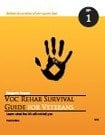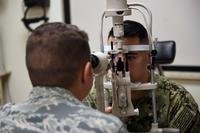Like some veterans, I did not read my VA claims denials for the first seven years I fought against erroneous VA claims denials. This anecdote is my own and an embarrassing confession as to how long it took me to sober up to the reality that trusting others to read my own claims denials and related documents was a horrible mistake.
I finally realized I could not trust VA and my VSO to fully review decisions when I first read various regulations related to a decision years ago where I was lowballed in a way that defied logic - VA blew off my TBI claim and awarded a 10% for the same single condition I now have a 70% rating for.
It took me many years to wake up and fully admit my own VA reality - that VA was not there to help. Once I admitted that reality, I was able to gear up and win my claim.
THE BIG TAKEAWAY IS IF YOU READ, YOU WIN
The reality was that I (and veterans like me) need to read my claims denials and associated support documents but sometimes fail to do so due to the number of documents or due to our own misunderstanding of the regulations.
But what does this mean? What does it really mean to “read” a claim denial? This may seem like a simple question but across different veteran channels it means different things.
Does reading mean that you read the basic header of the document to ensure it was sent to you? Does it mean that you at least read the denial language? Does it mean that you read the denial and also read the regulations justifying the denial? Does it mean you did all that an also read Board of Veterans Appeals grants and denials and Court of Veterans Appeals remands and denials?
And even if you read it, then what? This post highlights two issues as to what reading means and the “then what?” as to what to do next.
First, you need to read your denial and documents VA relies on for the denial. And second, you need to evaluate how words are defined by VA employees when they are used in your denial. You should focus on terms that look like the decision is based on them. In the legal community, these are loosely referred to as terms of art. An example of this for TDIU veterans is the term “traditional employment,” which basically means the type of employment a non-disabled person similarly equipped would be able to pursue with the same training and experience as the veteran.
It has been my experience that VA doctors and adjudicators will make up terms to avoid diving deeper into a complicated issue. That term may be relied on to justify the denial without providing a clear definition to allow rebuttal. In that instance, it will be up to you to find the error and appeal that decision based on a common definition used in dictionaries or by courts.
You can easily Google a definition of a term of art by placing quotations around the words that comprise the term and press “search.”
As to the purpose of this post, let’s assume that “reading” a claims denial means reading the full denial, reading the regulations, reading case law associated with each point, and reading the supportive documents justifying the denial.
Does that seem like a lot of work? Heck yeah it does. In fact, it is so much work that I propose many VA adjudicators and many veterans never fully read a denial or the related justification for the denial.
To some degree, both VA adjudicators and veterans assume a degree of faith in the accuracy of statements in the claim made by VA employees. However, VA does not hold the same regard for claims made by veterans even if that veteran seeking disability is a doctor or some other expert.
Double standard?
Statements relate to facts and evidence. Statements relate to statutory law, regulations and VA policy. Statements relate to case law. In those statements, there is a lot of room for error, especially when the record or denial documentation is supremely lengthy.
For example, when a claim file is over 5,000 pages, that length is supreme and poses and barrier to fully reading the full breadth of anything. Those supportive pages may lead up to a 30-page denial. And for some, that 30-page denial might seem like too much reading in certain situations, especially for disabled veterans with brain injuries.
If you accept the premises above as true, here are two quotes I find useful:
1) “Trusting others is only a mistake you make once;”
2) “No one will care more about your claim than you.”
Taken as true, here is my point based on my own anecdote.
Many veterans and many VA employees do not fully read a denial or the supportive evidence leading up to the denial. They put faith in a lot of other parties to correctly provide elements of information that were gathered together for the denial.
For that reason, you need to read your own denial and associated documents to ensure the decision was correct because the likelihood that a VA employee did not do so is always a risk not worth taking.
# # # # #
 Benjamin Krause is an award winning investigative journalist, attorney, and disabled veteran of the US Air Force, where he served in its Special Operations Command. He wrote his guide, the Voc Rehab Survival Guide for Veterans, after winning his long fight for benefits against VA to help other veterans do the same. Benjamin is a graduate of Northwestern University and the University of Minnesota Law School using VA Vocational Rehabilitation.
Benjamin Krause is an award winning investigative journalist, attorney, and disabled veteran of the US Air Force, where he served in its Special Operations Command. He wrote his guide, the Voc Rehab Survival Guide for Veterans, after winning his long fight for benefits against VA to help other veterans do the same. Benjamin is a graduate of Northwestern University and the University of Minnesota Law School using VA Vocational Rehabilitation.



